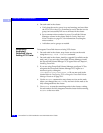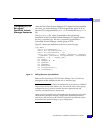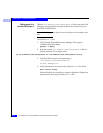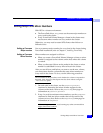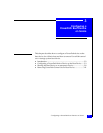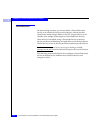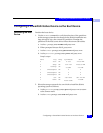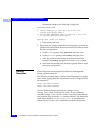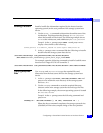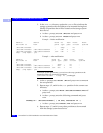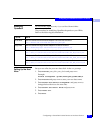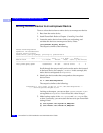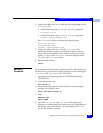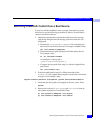
3
3-4
PowerPath for UNIX Installation and Administration Guide
Configuring a PowerPath Boot Device on Solaris
Information similar to the following is displayed:
AVAILABLE SELECTIONS
...
1. c0t0d0 <SUN4,2G cyl 3880 alt 2 hd 16 sec 135>
/pci@1f,4000/scsi@3/sd@0,0
2. c3t0d0 <EMC-SYMMETRIX-5265 cyl 4088 alt 2 hd 15 sec
64> /pci@1f,4000/QLGC,qla@4/sd@0,0
...
specify disk (enter its number):
c. Enter 2 and press ENTER.
3. Repartition the storage system device (if necessary) to model the
partition information from the host source drive in order to match
the drive configuration:
a. At the
format prompt, enter partition and press ENTER.
b. At the
partition prompt, enter modify and press ENTER.
c. After the partition in the storage system device has been
created, enter
modify and press ENTER at the format prompt.
d. Verify that the partition size allocated is greater than or equal
to the size you specified.
Creating
Filesystems
Create filesystems on the required partitions in the designated
storage system boot device.
The following example shows a subset of the filesystems you would
create when copying the OS to a Symmetrix device of Target 0 LUN 0
on controller 3:
newfs /dev/rdsk/c3t0d0s0
newfs /dev/rdsk/c3t0d0s6
newfs /dev/rdsk/c3t0d0s7
To use a different storage system device, change t0d0 to
tStorage_Device_target_numberdLUN_number. To use a different
controller, change
c3 to ccontroller_number. You must create both the
root partition (slice 0) and the
/usr partition (slice 6). You should also
create other partitions (
/export/home, /var, /opt) to mirror the
current layout. Use the
newfs command to create the filesystems.



